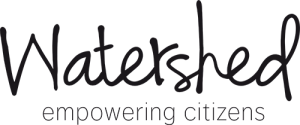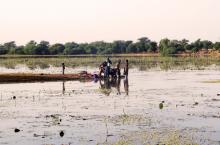How are IWRM and WASH-related, what are the steps already taken and what is still needed for integration?
In episode 9 of our WASH Talk series, host Andy Narracott speaks with Chris Baker from Wetlands International and François Brikké from the Global Water Partnership on how integrated water resources management (IWRM) is affecting WASH services. They talk about the effects of climate change on the availability of water, quantity of water sources and their quality. These effects have a direct influence on ensuring access to safe drinking water, sanitation, and hygiene for all.
Thus, IWRM and WASH need to be brought together. To support this process, the importance of integration at policy and programme level and the need for organisations that can communicate with all sectors to realise integration is discussed.
On a global level, speakers reflect on the limitations of the Millennium Development Goals (MDGs). Due to their main focus on poverty reduction, IWRM was not included in the goals. Now, the Sustainable Development Goal (SDG) era allows for more dialogue and cooperation by ensuring a call to action and a broader focus for both IWRM and WASH services. Data on progress is collected and monitored by the United Nations Environment Programme and DHI’s (UNEP-DHI) Centre for Water and Environment, so that momentum for change is created and sustained.
Our guest speakers:
Chris Baker is Programme Head for Water Resources Management at Wetlands International. He has led numerous development programmes of the organisation, such as their river and delta restoration and WASH programmes.
François Brikké is a Development Economist and Sanitary Engineer, with over 25 years’ experience in the water and sanitation sector. Since 2012, he is holding the position of Senior Network Officer at the Global Water Partnership, based in Stockholm. His professional experience covers all five continents both at policy and community levels.

